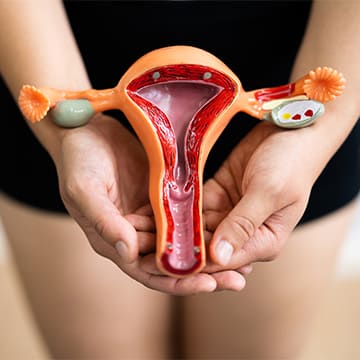
QUICK LINKS

What is Urogynecology?
Urogynecology is a specialized field of gynecology and obstetrics that deals with female pelvic medicine and reconstructive surgery. Doctors specializing in this field can evaluate, diagnose, and treat pelvic floor conditions such as pelvic organ prolapse, bladder or rectal incontinence, reproductive issues, and more. The pelvic floor is the area of the body that supports the bladder, reproductive system, and rectum.
When an individual is experiencing pelvic floor dysfunction, their pelvic muscles cannot properly work together or relax. In cases where these muscles cannot relax, patients may experience constipation, frequent urination, trouble controlling their bowels or bladder, or pain during sex.
“I highly recommend Dr. Tepper!He is highly professional, experienced, and calming. My pregnancy and birth were such a positive experience thanks to him and his lovely staff at the clinic.”
SEE MOREThere are many different factors that may trigger pelvic floor disorders, including:
- Aging.
- Pregnancy.
- Being overweight.
- Overuse of the pelvic muscles.
- Pelvic surgery.
- Injuries to the pelvic muscles.
How are Pelvic Floor Disorders Diagnosed?
To properly diagnose a pelvic floor disorder, Dr. Tepper will ask you questions about your symptoms and medical history. A physical exam may also be performed to see how well you can control your pelvic floor muscles. If Dr. Tepper feels that he needs more information in order to diagnose you, he may have you undergo some additional medical testing to see how the muscles of your pelvic floor function.

MEET DR. ALEX TEPPER
Welcome to my practice. Let me introduce myself and my practice philosophy. I am a board certified OB/GYN in practice for over 20 years and have been a solo-practitioner on the Upper East Side of Manhattan since 2000. All deliveries are performed at The Mount Sinai Medical Center where I went to medical school and at Lenox Hill Hospital.
Treatment Options for Pelvic Floor Disorders
In many cases, pelvic floor disorders can be treated fairly easily. Dr. Tepper will speak with you regarding all of your treatment options to help improve your symptoms. The most common pelvic floor disorder treatment options include:
- Biofeedback: This is a mind-body therapy often done with the assistance of a physical therapist that can help to improve your pelvic floor disorder symptoms. It may involve the use of special sensors or video to monitor your pelvic floor muscles as you try to clench and relax them. You will then receive feedback to help you improve muscle coordination.
- Pelvic floor physical therapy: This is a special type of physical therapy to help the pelvic floor muscles to work as they should through a number of exercises. A physical therapist will assess your symptoms to check to see how strong your core and pelvic floor muscles are before determining the exact exercises that may benefit you.
- Relaxation Techniques: Some patients may find it beneficial to partake in relaxation techniques such as warm baths, meditation, yoga, and certain exercises.
- Medications: There are different medications available to treat a variety of pelvic floor problems and/or symptoms.
- Pessaries: Sometimes pessaries, or medical devices that are placed into the vagina, are needed to support the organs if prolapse problems are present.
- Surgery: In some cases, Dr. Tepper may recommend you undergo surgery. There are a number of different surgical treatment options depending on the cause of your symptoms and may include vaginal wall repair, bladder installations, uterus removal, or bladder control surgery.
BOOK AN APPOINTMENT
Whether you are a new or returning patient, Dr. Tepper can assess your concerns and discuss your options to find the most comfortable and convenient care for you. To get started, call our office to set up an appointment.
CALL FOR APPOINTMENTContact Us to Learn More
If you are experiencing the symptoms associated with pelvic floor dysfunction or are interested in learning more about our offered treatments, contact us today! We will be happy to schedule your initial appointments with Dr. Tepper to get started.
Our Blog

Preterm Labor: Are You At Risk?

Postpartum Depression: Symptoms, Causes, and Treatments



